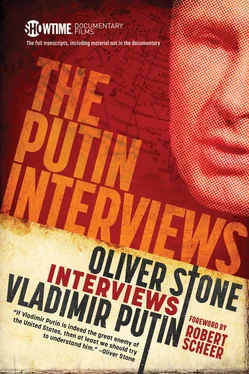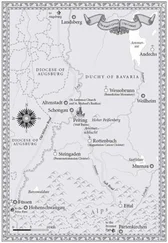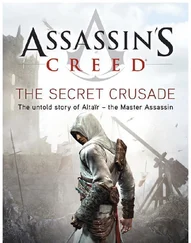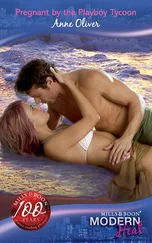OS:I mean, it’s still amazing that at your age you wanted to learn something new and I also saw you skiing. You had never been skiing before.
VP:I started skiing when I was a student. And I just recently started skating.
OS:Yeah, I saw that—in hockey.
VP:When I started skating, my first thought was—that’s just two years ago—I thought that I was never going to learn how to skate. And my first thought was: how to stop, how do I stop?
OS:Yeah. So are you worried about breaking an ankle? Or you’re not worried about injuring yourself, are you?
VP:Well, if you keep thinking about these things then probably you should stay at home.
OS:Well, hockey is a rough sport.
VP:Well, I didn’t expect it to be so rough. I thought that Judo was the roughest one, but it turned out that hockey was very athletic in its nature.
OS:Are you still playing?
VP:Yes, this morning I played hockey.
OS:Really? Unbelievable. And do you have any plans to conquer a new sport?
VP:No, not yet.
OS:But you’ve learned French?
VP:No, actually just a couple of phrases.
OS:Well, you went to Guatemala—that was enough to get the Winter Games.
VP:One of the International Olympic Committee members told me that I had to say at least a couple of words in French. That was a must he said.
OS:Oh, it was just a couple? You cheated.
VP:He said it was a token of respect. Not to the French, but to the Francophone African countries.
OS:Well thank you Mr. Putin for a wonderful beginning.
VP:Thank you. We’re going to continue tomorrow.
Trip 1—Day 2—July 3, 2015
ON YELTSIN AND THE GULF WAR
VP:There were many economic advisers from the United States working with the Central Government and the administration of President Yeltsin. And since we were in St. Petersburg we had little to do with it.
OS:But you joined with Yeltsin in ’95, right?
VP:1996, to be more exact. I’d like to draw your attention to the fact that I was working in the office of the administration of the president and we had to deal with domestic matters. And I personally was in charge of legal affairs. But certainly later when I worked at the office of the administration and when I was working in St. Petersburg, we closely followed all these matters. And we saw the discussions between the American School of Economics and the Europeans, the majority of whom were not entirely approving of the recommendations which we were given by the Americans. I refer in particular to the privatization of state property. And to be frank we couldn’t interfere within this process and we didn’t. But what the Europeans told us back then, I thought that was quite objective, quite just. But what the American experts promised us looked much more attractive.
OS:Now, looking back at it, was this a private effort or did you feel the presence of the American government as well?
VP:I think both. Both the private sector and the government. Certainly the private sector was taking an active part in this process. But no doubt under the control of the central government.
OS:Did Mr. Yeltsin ever express dark thoughts about American interests here?
VP:No, never.
OS:Never?
VP:Never. Well, he didn’t express those thoughts but he didn’t go deep into economic issues. He trusted the government on the whole. He trusted those people who work around him. Those people whom he thought to be the new generation.
OS:And the Europeans were telling you what?
VP:Europeans thought that unchecked privatization that was conducted in Russia wouldn’t lead to raising the efficiency of the economy. Particularly as far as privatization in the key branches of the economy was concerned. As a matter of fact they proposed a softer way to us. Two words: market economy. And I believe that would have been much more efficient now that I look back at that time. And it wouldn’t have led to such acute social consequences. But we have to admit and to give credit to those who took the decision back then—they were bold enough to take steps without which no transition towards a market economy would have been possible.
OS:And who would that be?
VP:Yegor Gaidar, primarily. Chubais, from the economy ministry. Andrei Nechaev.
OS:So you’re saying you agree with the policy, but it was implemented too quickly?
VP:I agree with the objectives which they put forward. But I do not agree with the methods which they employed.
OS:As a young man, did you see anything wrong when Gorbachev made his deal with Reagan and brought back the troops from Eastern Europe? Did you see anything wrong with the United States intervening in Iraq in January of 1991?
VP:Publicly, I spoke about that, as far as the first part of your question is concerned. As to Eastern Europe, I think it would be senseless and damaging if the Soviet Union itself was to impose on other peoples and other nations their rules of conduct. Their vision of how society was to develop, how the political and state system of those countries was to be constructed. And that approach didn’t have any future. And it was quite evident that one way or another that had to end. People cannot always put up with decisions which are imposed on them from outside. Apart from that, Eastern Europe and Europe on the whole had their own political traditions and that couldn’t be neglected.
OS:Let’s lay it on the line here. I mean, I was in the Vietnam War. We sent 500,000 troops to Vietnam. That was outrageous and condemned by the whole world. After the détente with Gorbachev, Reagan and the United States put 500,000 troops into Saudi Arabia and Kuwait.
VP:I know that you are very critical of the American government in many dimensions. I do not always share your point of view. Despite the fact that, with regards to the American leadership, we do not always have the relationship we would like to have with them. Sometimes decisions have to be taken which are not entirely approved of in some parts of society. But it’s better to make some decisions than make none.
OS:So you don’t disapprove of the US sending 500,000 troops to the Middle East all of a sudden?
VP:You know, I think it’s erroneous and wrong to impose on other nations and peoples one’s own standards and models. I’m referring in particular to democracy. Democracy cannot be imported from outside, it can only be born within society. And society should be helped to follow this path, but trying to impose it by force from outside is senseless, it’s counterproductive, it’s damaging. And as to the use of force, including ground force, sometimes it is necessary. Certainly it’s better if it’s done at the invitation of the governments concerned or in accordance with international law, and based on a decision by the UN Security Council.
OS:Yeah. Okay. Well, I mean Gorbachev makes a supreme effort for peace. And within a few months of the Berlin Wall falling, the US is sending troops into Panama illegally—not supported by other nations, condemned by the Latin American countries.
Читать дальше












